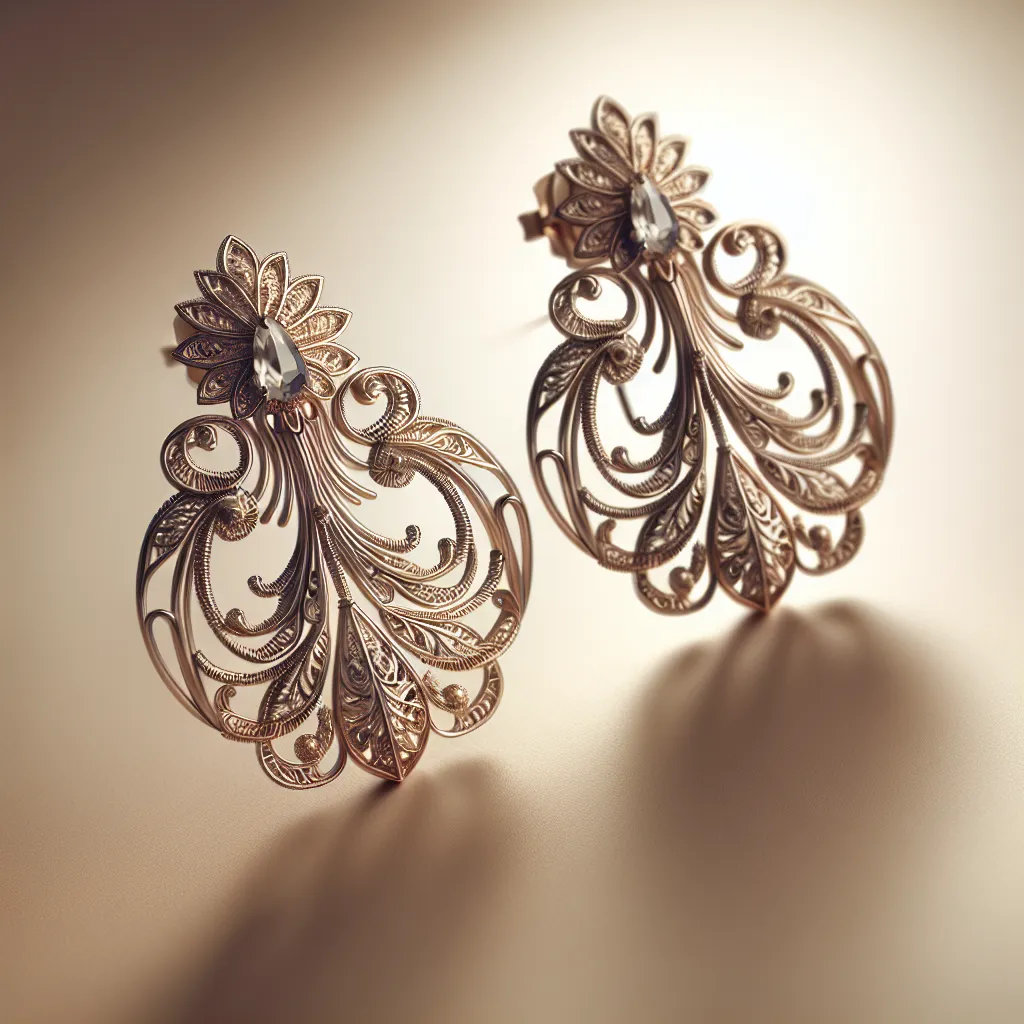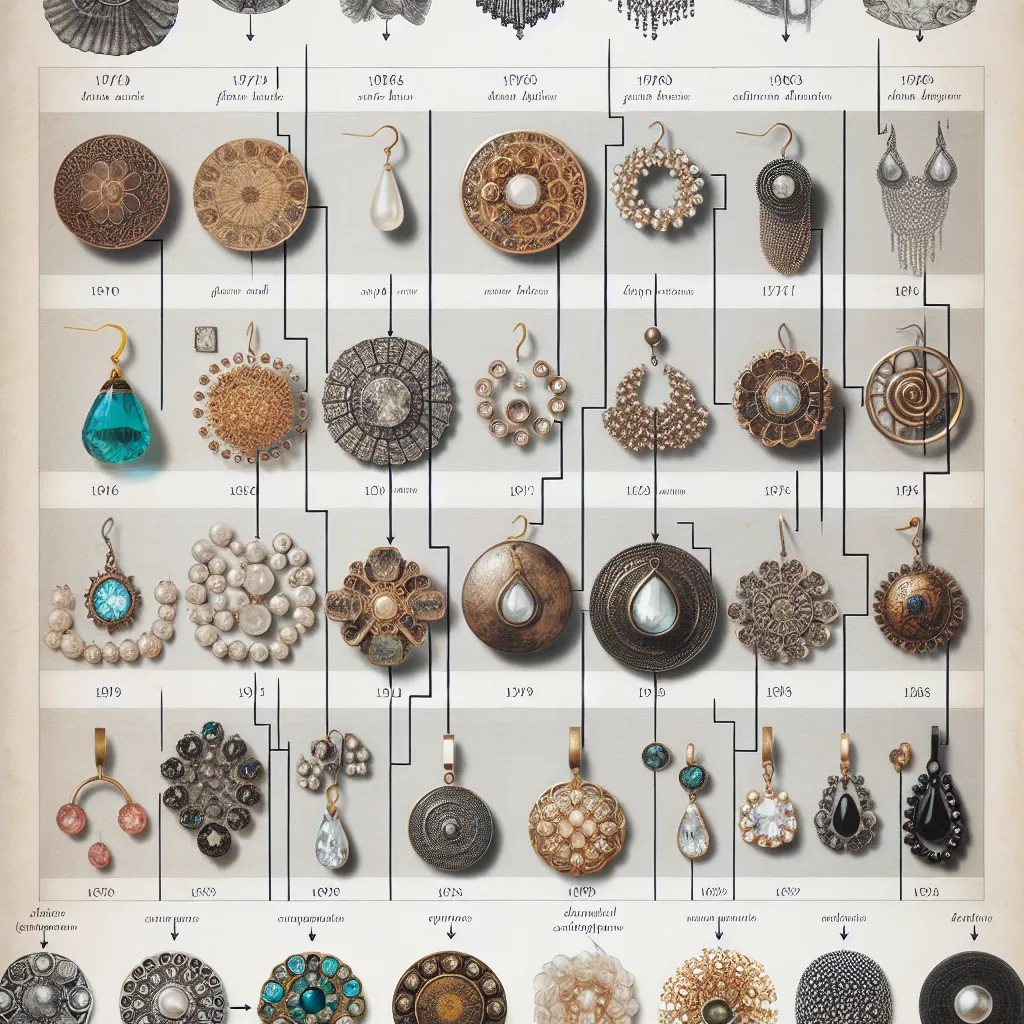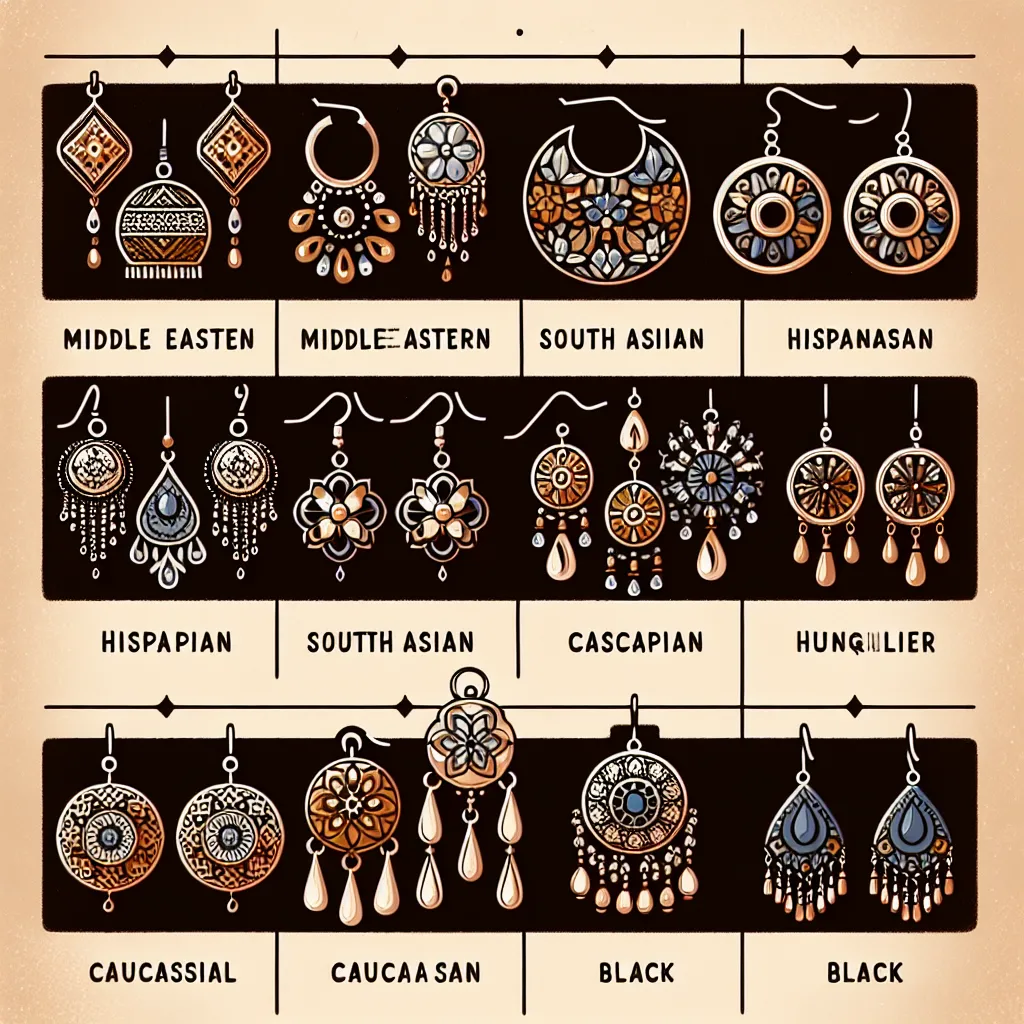The Emotional Significance of Earrings
Wearing earrings is more than just a fashion statement; it holds deep emotional significance for many individuals. The act of adorning oneself with earrings can be a powerful form of self-expression and can have a significant impact on one’s psychological well-being. Earrings can hold sentimental value, serving as mementos of special occasions, gifts from loved ones, or symbols of personal identity and style.
Studies have shown that jewelry, including earrings, can evoke strong emotional responses and carry personal meanings that are deeply intertwined with the wearer’s sense of self. The choice of earrings can reflect one’s mood, personality, and cultural or religious affiliations. For example, the act of wearing a pair of earrings that have been passed down through generations can create a sense of connection to one’s family history and heritage.
Furthermore, the process of selecting and wearing earrings can contribute to a sense of empowerment and confidence. The right pair of earrings can enhance one’s self-esteem and create a feeling of being more put together and ready to face the world. Additionally, the compliments and positive attention received when wearing earrings can boost one’s mood and sense of validation.
In conclusion, the act of wearing earrings goes beyond mere aesthetics; it has a profound emotional impact on an individual’s psyche. Whether it’s the sentimental value, the sense of identity, or the boost in confidence, earrings play a significant role in shaping one’s emotional well-being.
How Earrings Influence Self-Perception
Wearing earrings is not just a fashion statement; it can also have a significant impact on self-perception and psychological well-being. The choice of earrings can reflect an individual’s personality, style, and even their mood, thereby influencing how they perceive themselves and how they are perceived by others. Studies have shown that wearing earrings that align with one’s self-image can boost confidence and self-esteem. Additionally, the act of selecting and putting on earrings can serve as a form of self-expression, allowing individuals to assert their identity and feel more in control of their appearance.
Furthermore, the weight, size, and design of earrings can also influence self-perception. For instance, wearing large, dangling earrings might make an individual feel more glamorous and bold, while wearing small, subtle earrings could evoke a sense of understated elegance. The psychological impact of earrings can vary across cultures and individuals, as different societies and personal preferences attach diverse meanings to wearing earrings.
In conclusion, earrings play a multifaceted role in shaping self-perception. By understanding how earrings can influence psychological well-being, individuals can harness this form of self-expression to enhance their self-image and confidence.
Earrings as Symbols of Identity
Earrings have been worn for centuries as a form of personal adornment, and they often hold deep symbolic meaning for the wearer. In many cultures, earrings are used as a powerful symbol of identity, representing various aspects such as social status, religious affiliation, or belonging to a particular community.
For instance, in certain African and Native American societies, earrings are traditional symbols of tribal affiliation and belonging. The type of earring worn and the way it is adorned can convey specific information about the wearer’s place within the community and their life stage. Similarly, in some Asian cultures, earrings can signify marital status, with specific styles denoting whether a woman is single or married.
Furthermore, in contemporary Western societies, earrings are often used as a means of self-expression and identity formation. People may choose to wear earrings that reflect their personal style, cultural heritage, or affiliations with social or political movements. Certain subcultures and marginalized groups also use earrings as a way to express their identity and solidarity with their community.
Research has shown that the act of choosing and wearing earrings can have a profound psychological impact on an individual’s sense of self. The process of selecting earrings that hold personal significance can contribute to a heightened sense of self-expression and empowerment. Conversely, the cultural and social meanings attached to specific earring styles can also influence the wearer’s sense of belonging and acceptance within their social context.
In conclusion, earrings serve as powerful symbols of identity across various cultures and societies. Whether as markers of tradition, expressions of personal identity, or statements of belonging, the psychological impact of wearing earrings goes beyond mere fashion, playing a significant role in shaping an individual’s sense of self and connection to their community.
The Evolution of Earring Trends
When it comes to the psychological impact of wearing earrings, it’s essential to consider the evolution of earring trends. Earrings have been a significant part of human adornment for centuries and have evolved in style, size, and materials. The early civilizations used earrings as a symbol of cultural identity, social status, and religious significance. As time progressed, earring trends shifted from simple designs to more elaborate and ornate styles, reflecting changing fashion preferences and societal norms.
In the modern context, earring trends continue to evolve, influenced by factors such as celebrity culture, runway fashion, and globalized markets. The psychological impact of these trends on individuals is noteworthy, as earrings can serve as a form of self-expression, creativity, and confidence. The choice of earrings can reflect one’s personality, mood, and sense of style, contributing to a person’s overall self-image and well-being.
Understanding the evolution of earring trends provides valuable insights into the psychological significance of wearing earrings in today’s society. It emphasizes the role of earrings as more than just fashion accessories, highlighting their cultural, social, and personal implications.




